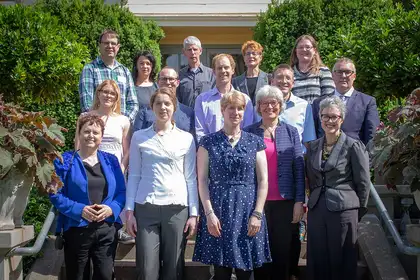
Massey University’s up-and-coming teaching stars were recognised at the Vice-Chancellor’s Teaching Awards, held yesterday at the Manawatū campus.
Dr Carolyn Gates, Dr Ella Kahu and Eva Schröer-Merker were named as the inaugural winners of the Early Career Teaching Award, which is aimed at recognising high quality teachers with three to six years teaching experience.
They were presented with their awards alongside the winners of the Vice-Chancellor’s Award for Teaching Excellence. Dr Christina Severinsen was the sole individual to win the award, while the 100-level Statistics Team and Physical Geography Team were presented with team awards.
National Centre for Teaching and Learning director Duncan O’Hara said the calibre of the applications is outstanding every year and this year was no different. “The bar is set high.” He said of the winners: “You are committed to your students, you have excellent practice, you’re innovative and outstanding.”
Vice-Chancellor Professor Jan Thomas said students are everything at a university and she recognised that the diversity of the Massey student base compared with other universities made it more challenging to be a successful teacher. “That says something about you and your dedication.”
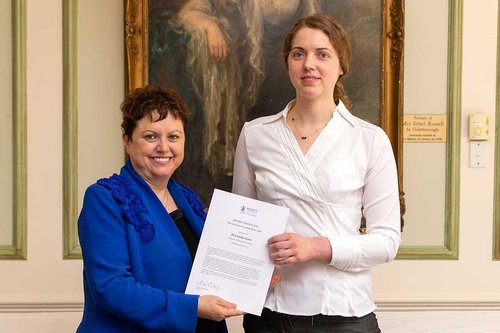
Dr Carolyn Gates
Storytelling, guided instruction and using assessment as learning opportunities, characterise Dr Gates’ teaching approach. During the four years Dr Gates, from the School of Veterinary Science, has been teaching at Massey University she has had a profoundly positive impact on student learning and achievement, and is a role model for new and experienced teachers alike.
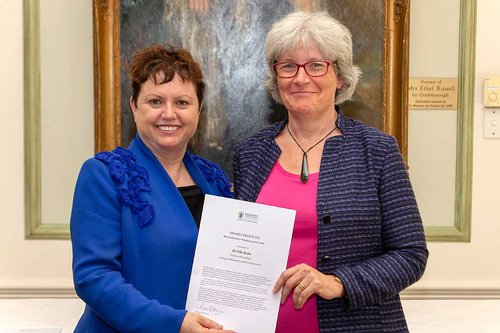
Dr Ella Kahu
Dr Kahu from the School of Psychology, was described as a “supremely accomplished teacher” and praised for her approach to teaching distance students. One of her students was even compelled to write to her to say she was “quite possibly the best teacher I have ever had (and not just at Massey)”.
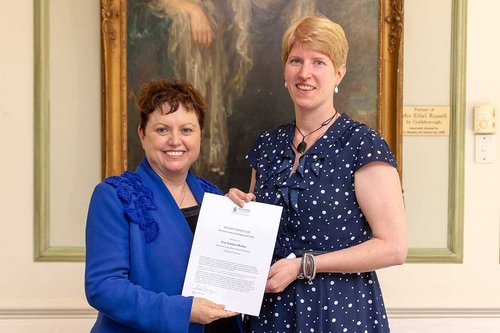
Eva Schröer-Merker
Ms Schröer-Merker from the School of Agriculture and Environment, was praised for her dedication and passion to creating an inclusive, safe, flexible and responsive learning environment. She says her teaching style revolves around being flexible and responsive to the students’ learning needs. “I was amazed by the students’ constructive feedback and input. And I also learned how our best intentions as teachers can sometimes miss the point if we do not consider the students’ view.”
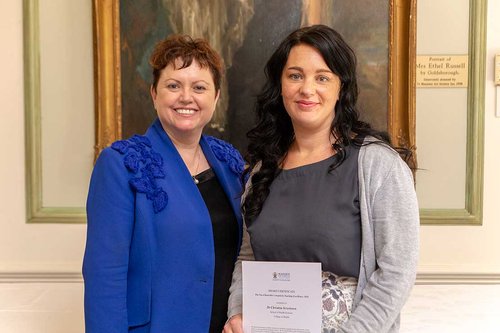
Dr Christina Severinsen
Dr Severinsen from the School of Health Sciences, was praised for bringing innovation to her teaching and constantly looking at ways she can make meaningful connections with her students, with one student commenting “Clearly, you’ve spent hundreds of hours acquiring content and resources for this course and as a result, it is so very engaging and interesting. You are one of those special people that are ‘born to teach’.”
Physical Geography Team, from left: Professor Ian Fuller, Dr Katherine Holt, Dr Sam McColl, Dr Alastair Clement
The Physical Geography Team from the School of Agriculture and Environment, were praised for working as a cohesive group to maximise their students’ potential for learning. Treating students as partners in the learning experience and respecting their input has led to consistently high satisfaction rates and students who are engaged, inspired and empowered to take on the challenges of environmental change.

100-level Statistics Team: Professor Geoff Jones, Dr Katharina Parry, Dr Debbie Leader, Dr Jonathan Marshall and Anne Lawrence
The 100-level Statistics Team from the Institute of Fundamental Sciences, is described as epitomising “enthusiasm, care and warmth”. They tailor their teaching to suit the diversity of learners on their course and embrace diversity by working to create a learning environment that acknowledges Māori and Pasifika student needs, caters to students with learning and physical disabilities and promotes and supports female student participation in STEM subjects.